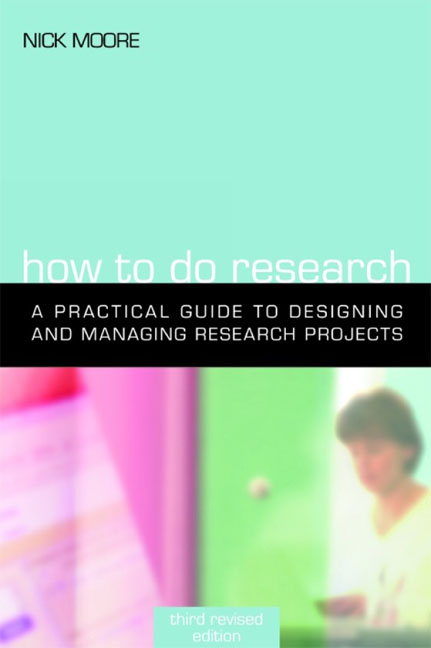Introduction: Types of research
Published online by Cambridge University Press: 09 June 2018
Summary
There are many different types of research. This book is about social research – about research into people and institutions and the relationships between them.
People have different motives for undertaking research. Some do it for academic reasons – as part of a course of study or to advance our theoretical understanding of the world around us. Others do it in an attempt to solve a problem or to develop a practical understanding of a situation. They may use the same research methods and manage their work in similar ways, but their starting points will be different. Their motivations will affect the design of the research and will, to a great extent, determine the way the results are interpreted and reported.
Academic research
Academic research is primarily concerned with developing a theoretical explanation or understanding of an issue. For most people the motivation will be clear – the research will be undertaken as a step towards the acquisition of an academic or professional qualification. For some, it will be an essential part of an academic job. In both cases the primary motivation should be reinforced by a more general desire to increase the sum of knowledge and understanding or, at least, to reduce levels of uncertainty.
Undergraduate and masters’ degrees
The first step on the academic research ladder will usually be a dissertation completed as part of a first or master's degree. This kind of research is intended to demonstrate the researcher's grasp of the subject or discipline and to provide a basic level of training and practice in systematic investigation. It also demonstrates the researcher's ability to handle and manage information and data, to organize their time and to communicate something sensible through 10 or 20,000 words of continuous prose.
The research is usually very self-contained and relatively modest in scale. It begins with a review of what others have written on the subject, followed by the definition of the research question that the dissertation seeks to explore. This question is then explored through a small-scale piece of research, perhaps involving the collection and analysis of some data or occasionally a detailed analytical review of the literature. Here the aim is not really to produce definitive answers, rather it is to demonstrate that the candidate can handle research methods, and data, satisfactorily.
Information
- Type
- Chapter
- Information
- How to Do ResearchA practical guide to designing and managing research projects, pp. vii - xviPublisher: FacetPrint publication year: 2006
